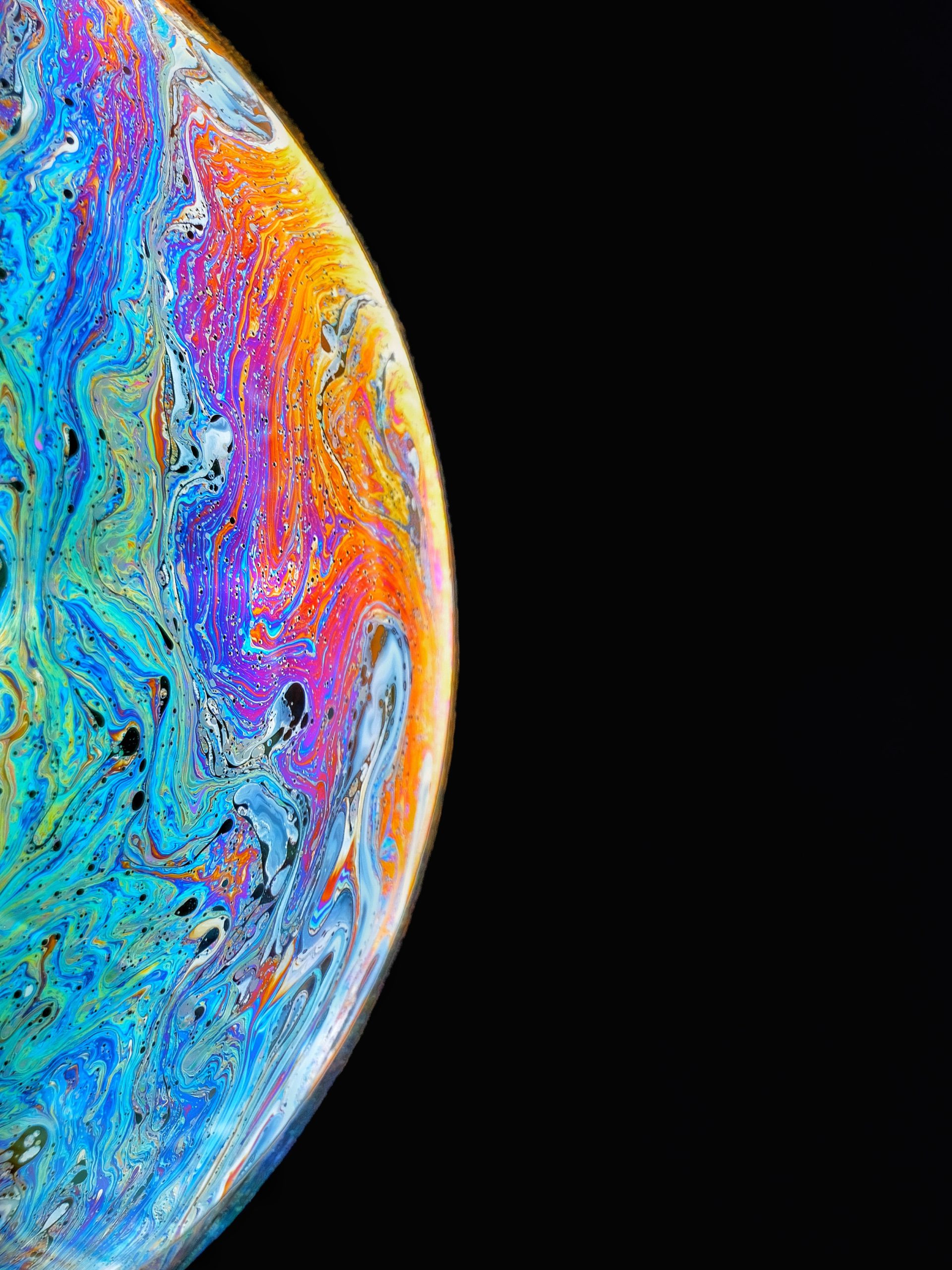Curious minds have wondered whether Palmitoylethanolamide (PEA), a naturally occurring fatty acid amide, functions as a so-called love drug. Originally discovered in the 1950s, PEA has gained recognition for its potential therapeutic properties. As an endocannabinoid, it is believed to help regulate the immune response and promote balance within the body. Frequently referred to as a nutraceutical or dietary supplement, PEA’s health benefits are often associated with managing chronic pain and inflammation. But could it also play a role in matters of the heart? Let’s explore the fascinating question of whether PEA is indeed a love drug.
Understanding PEA
What is Palmitoylethanolamide (PEA)?
Palmitoylethanolamide (PEA) is a naturally occurring fatty acid amide that belongs to the family of endocannabinoids. It was first isolated from soybean lecithin in the 1950s and has since gained attention for its potential therapeutic properties. The compound is synthesized in various tissues of the body, particularly in response to inflammation and pain, and is believed to play a role in modulating the immune response and promoting homeostasis.
History of PEA
PEA has a rich history that dates back to its discovery in the 1950s. Since its isolation, scientists have been intrigued by its potential therapeutic properties and have conducted numerous studies to better understand its effects on the body. Over the years, research has provided valuable insights into the various functions of PEA and its potential applications in managing chronic pain, inflammation, and other health conditions.
Synthesis and Function in the Body
PEA is synthesized in various tissues of the body, including immune and neural cells. It is produced in response to inflammation and pain as a protective mechanism. PEA functions by binding to certain receptors in the body, particularly those involved in the immune response and pain modulation. By interacting with these receptors, PEA helps regulate the body’s inflammatory response and promotes homeostasis. It also plays a role in modulating neurotransmitters and can influence various physiological processes.
PEA as a Nutraceutical
Definition and Role of Nutraceuticals
Nutraceuticals are substances that are derived from food sources and have potential health benefits. They are often used as dietary supplements to complement a person’s diet and promote overall well-being. Nutraceuticals are distinct from pharmaceutical drugs as they are considered natural compounds and do not typically require a prescription for use.
PEA as a Dietary Supplement
PEA falls under the category of nutraceuticals due to its naturally occurring nature. It is commonly available as a dietary supplement in various forms, such as capsules or powders. These supplements are widely used by individuals seeking alternative approaches to managing chronic pain, inflammation, and other related conditions. However, it is important to consult with a healthcare professional before incorporating any new supplement into your routine.
Health Benefits of PEA
PEA has garnered attention for its potential health benefits. Research suggests that PEA may have anti-inflammatory and analgesic properties, making it a promising candidate for managing chronic pain and conditions associated with inflammation. Additionally, PEA has been found to have neuroprotective effects and may play a role in improving mood and reducing stress. However, further studies are needed to fully understand and validate these potential benefits.

PEA and Love
Exploring the Connection between PEA and Love
Love is a complex emotion that has intrigued scientists for centuries. There have been studies exploring the role of various hormones and neurotransmitters in the experience of love, including PEA. While PEA has not been directly linked to love, some researchers hypothesize that it may contribute to the feelings of attachment and bonding that are often associated with romantic love.
PEA and the Brain Chemistry of Love
In the brain, love is associated with the release of certain chemicals, such as oxytocin and dopamine. Oxytocin, often referred to as the “love hormone,” is involved in social bonding and trust. Dopamine, on the other hand, is associated with pleasure and reward. PEA is believed to interact with these neurotransmitters, potentially influencing the overall experience of love.
Potential Effects of PEA on Romantic Bonds
While the exact role of PEA in romantic bonds is still being studied, there is some evidence to suggest that it may have an impact. Some research suggests that PEA may enhance feelings of well-being and attachment, potentially strengthening romantic relationships. However, it is important to note that love is a complex emotion influenced by a multitude of factors, and PEA is just one potential piece of the puzzle.
PEA and Pleasure
The Relationship between PEA and Pleasure
Pleasure is a fundamental aspect of human experience, and PEA has been implicated in its regulation. Research suggests that PEA may play a role in the brain’s reward pathway, which is responsible for feelings of pleasure and motivation. By influencing this pathway, PEA may contribute to the overall experience of pleasure.
PEA and Dopamine Release
Dopamine is a neurotransmitter closely associated with pleasure and reward. It plays a crucial role in the brain’s reward pathway. Some studies suggest that PEA may interact with dopamine receptors, potentially enhancing dopamine release and contributing to pleasurable sensations.
PEA and Sexual Function
Sexual pleasure is closely linked to the release of dopamine in the brain. As PEA has been shown to have an influence on dopamine, it is theorized that it may also impact sexual function and pleasure. However, more research is needed to fully understand the relationship between PEA and sexual function.

PEA and Mood Enhancement
PEA and the Brain’s Reward Pathway
The brain’s reward pathway is involved in regulating mood, motivation, and pleasure. PEA has been found to interact with this pathway, potentially influencing mood enhancement. Research suggests that PEA may enhance the release of dopamine and other neurotransmitters involved in mood regulation.
PEA as a Mood Booster
PEA has been studied for its potential mood-boosting effects. Some individuals report experiencing increased feelings of well-being and improved mood after taking PEA supplements. However, it is important to note that individual responses to supplements may vary, and more research is needed to fully understand the impact of PEA on mood.
PEA and Depression
Depression is a complex mental health condition characterized by persistent feelings of sadness and a loss of interest in activities. While PEA has shown promise as a mood enhancer, its specific role in the treatment of depression is still being investigated. Additional research is needed to determine the effectiveness of PEA as a standalone or adjunctive treatment for depression.
PEA and Stress Reduction
PEA as an Anti-Stress Agent
Stress is a natural response to various external and internal stimuli. Prolonged or excessive stress can have detrimental effects on physical and mental well-being. Some research suggests that PEA may have anti-stress properties, potentially helping individuals better cope with stressors and promoting overall resilience.
PEA’s Impact on the Stress Response
The body has a complex network of systems involved in the stress response, including the hypothalamic-pituitary-adrenal (HPA) axis. PEA has been shown to interact with the HPA axis, potentially modulating the stress response. By influencing the release of stress hormones, PEA may help regulate the body’s response to stress.
Potential Benefits for Anxiety and PTSD
Anxiety disorders and post-traumatic stress disorder (PTSD) are conditions characterized by excessive fear, worry, and an overactive stress response. PEA’s potential anti-stress properties have led to speculation about its usefulness in managing these conditions. However, more research is needed to determine the effectiveness of PEA as a treatment for anxiety and PTSD.

PEA and Pain Management
PEA’s Role in Pain Modulation
PEA has been extensively studied for its potential role in pain management. It is believed to have analgesic properties and can modulate pain signals in the body. By interacting with receptors involved in pain perception, PEA may help reduce pain intensity and improve pain tolerance.
PEA as an Anti-Inflammatory Agent
Inflammation is a natural response of the body to injury or infection. However, chronic inflammation can contribute to the development of various health conditions. PEA has been found to have anti-inflammatory properties and has been studied for its potential in managing conditions associated with chronic inflammation.
Potential Applications for Chronic Pain
Chronic pain conditions, such as fibromyalgia, neuropathic pain, and osteoarthritis, can significantly impact a person’s quality of life. PEA has shown promise in managing these conditions and may be used as part of a comprehensive pain management plan. However, it is important to consult with a healthcare professional for a personalized approach to pain management.
PEA and Neuroprotection
Protective Effects of PEA on Nervous System
The nervous system is responsible for coordinating various bodily functions, and its proper functioning is crucial for overall health. PEA has been found to have neuroprotective effects, potentially protecting nerve cells from damage and promoting their survival. These effects may have implications for various neurological disorders.
PEA and Neurological Disorders
Neurological disorders, such as Alzheimer’s disease and multiple sclerosis, can have a significant impact on a person’s cognitive and physical abilities. Preliminary studies suggest that PEA may have potential therapeutic benefits for these conditions. However, further research is needed to determine the effectiveness and safety of PEA as a treatment option.
Implications for Brain Health
Maintaining brain health is essential for overall well-being and cognitive function. The neuroprotective effects of PEA, along with its potential mood-enhancing and stress-reducing properties, suggest that it may play a role in promoting brain health. However, more research is needed to fully understand the mechanisms of PEA’s actions and its impact on brain health.
PEA and Weight Management
PEA’s Influence on Appetite and Metabolism
Appetite and metabolism are closely tied to weight management. PEA has been found to interact with receptors involved in appetite regulation and metabolic processes. Some studies suggest that PEA may help regulate appetite, potentially leading to weight management benefits.
PEA as a Potential Weight Loss Aid
Weight loss is a common goal for many individuals, and there is ongoing research into the potential of PEA as a weight loss aid. Some studies suggest that PEA may have thermogenic properties, meaning it could potentially increase energy expenditure and enhance fat burning. However, more research is needed to determine the effectiveness and safety of PEA for weight management.
Effects on Obesity and Metabolic Disorders
Obesity and metabolic disorders, such as diabetes and metabolic syndrome, are major health concerns worldwide. PEA’s potential influence on appetite regulation and metabolism has led to speculation about its role in managing these conditions. While preliminary research is promising, further studies are needed to establish the effectiveness of PEA as a treatment option for obesity and metabolic disorders.
Conclusion
Palmitoylethanolamide (PEA) is a naturally occurring fatty acid amide with potential therapeutic properties. It is often referred to as a nutraceutical or dietary supplement due to its naturally occurring status. PEA has been studied for its role in various aspects of health, including pain management, mood enhancement, stress reduction, and neuroprotection.
While PEA shows promise in several areas, it is important to note that more research is needed to fully understand its mechanisms of action and to validate its potential benefits. As with any dietary supplement, it is recommended to consult with a healthcare professional before starting PEA or any new supplement regimen. By staying informed and making informed decisions, you can optimize your health and well-being.







